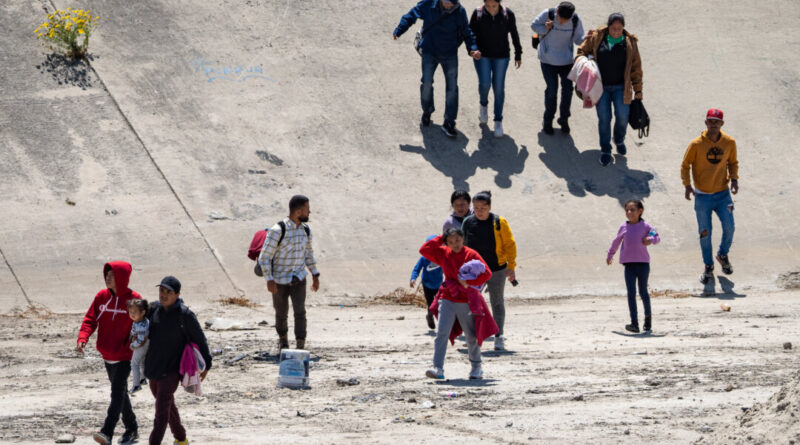Mexican Authorities Disband ‘Migrant Caravan’ En Route to the U.S., Activists Report
This occurs during discussions between President-elect Trump and the president of Mexico concerning border security.
Mexican authorities dismantled two caravans of potential illegal immigrants en route to the United States, shortly after President-elect Donald Trump cautioned that he would impose a 25 percent tariff on imports from Mexico.
Migrant activists reported this week that some individuals were transported by bus to various cities in southern Mexico, while others were given transit papers. Activist Luis Garcia Villagran observed that the disbanding of the two caravans seemed to be part of a “deal between the president of Mexico and the president of the United States.”
The first caravan departed from the southern Mexican city of Tapachula, near the Guatemalan border, on November 5, the same day Trump was elected. At its peak, it consisted of around 2,500 migrants. Over nearly four weeks of travel, it covered a distance of approximately 270 miles to Tehuantepec, in the state of Oaxaca, according to activists.
Upon reaching Tehuantepec, Mexican immigration officials provided the migrants with complimentary bus rides to other destinations in southern or central Mexico, as reported by caravan participants and activists.
“They transported some of us to Acapulco, others to Morelia, and some from our group to Oaxaca city,” stated Barbara Rodriguez, an opposition supporter who fled Venezuela following that country’s disputed presidential elections earlier this year.
The second caravan, consisting of about 1,500 migrants, began its journey on November 20 and reached the town of Tonala in Chiapas state, approximately 140 miles away, according to activists. There, authorities provided a type of transit visa that permits travel across Mexico for a duration of 20 days.
However, the agency refuted claims in its two statements that the government “misleads foreigners who decide to abandon their transit through caravans and accept the transportation service provided by immigration authorities to relocate to different locations where they can receive medical assistance and their immigration status can be evaluated,” as translated.
The INM also stated that it “has not received any complaints from foreigners who have accepted this assistance, as they indicated at the time that they did not wish to face additional risks in their journey,” according to the statement.
“At no point did the INM promise anything that it did not follow through on,” the agency emphasized.
Moreover, the INM reported finding children and other “vulnerable individuals” among these caravans. Those individuals were removed to ensure they were cared for by other government entities in accordance with Mexican law.
Recently, Trump issued a warning that his forthcoming administration would swiftly impose tariffs on Mexican imports unless the country took concrete steps to address illegal immigration and drug trafficking.
In a statement made that same week, Mexican President Claudia Sheinbaum revealed that she had spoken with Trump and suggested that they were making progress.
“You might not be aware that Mexico has developed a comprehensive policy to support migrants from various parts of the globe who pass through our territory on their way to the southern U.S. border,” she explained, as per a translation from the embassy.
The Epoch Times reached out to the Mexican Embassy in the United States for comments but received no response by the time of publication.
This report includes contributions from the Associated Press.



